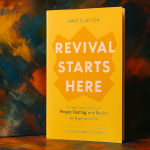 We now turn to the “Lamed” section of Psalm 119 — verses 89-96. The first word of this section, le-olam, “unto forever,” sets the whole tone and opens the window on what the psalmist urges us to see. God is a forever-God.
We now turn to the “Lamed” section of Psalm 119 — verses 89-96. The first word of this section, le-olam, “unto forever,” sets the whole tone and opens the window on what the psalmist urges us to see. God is a forever-God.
Time has its own way of confusing us, for if God created time, time is creation. If God is outside of time, then God is not bound by time. Our participation in time is participation in God’s own eternal life. It is easy for us to think of God as eternal in beginning and forever in in the future, but it is probably more biblical to think of our participating in time as we relate to God in God’s eternality, in the life of the Trinitarian persons. LeRon Shults calls something on this order the “absolute futurity” of God. Well, having said that, here’s the psalmist:
Yahweh exists forever (119:89), and that Yahweh has established the earth and it stands (90b).
The timelessness, or absolute futurity, the Olam of God is a window into our relationship to God, into our relationship to God’s Word, and into our relationship to others in this world.
The World hangs together in the Life of God, and God’s Olam Life sustains us. Breathing in that Olam Life of God and orienting our lives into that Olam Life of God is the North Pole of human existence. As we participate in the Olam Life of God, we genuinely live.
I really like what I read in Psalm 119:96: “To all perfection I see a limit, but your commands are boundless.”
The psalmist, here writing a bit like Ecclesiastes, says he has considered the end of all ends, the completeness of all completions, and to each there is a limit. His strivings have come to their ends.
But, he turns from his strivings for the ends, for the bottom of it all, and he finds God’s “commands,” God’s mitzvot, and they are inexhaustible. They have no limit, there is muchness and abundance, there is an exceedingness, an excess of muchness.
At times I hear some say this of the Bible — it is inexhaustible. There is truth there, but sometimes folks get this backwards. The Word is not inexhaustible on its own. It is Olam because God is Olam, God’s truth-ness is Olam, and therefore the Olam God who communicates truthfully to us through word-become-Word creates a Word that is inexhaustible.
The very mitzvot, the commandments to do God’s will, because they have their funded sources in the Olam God, are noted by muchness, by abundance, but an excess of limits that boggle. As we come to know God through hearing his mitzvot and seeing our calling in life, we learn to know the Olam God whom we know as Olam itself.















